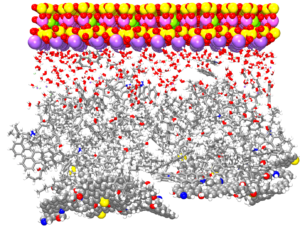The major challenges of the food and beverage industry
The food and beverage industry has a unique role as it is universal to human life and health. The F&B sector poised for enormous growth to satisfy the increasing populations and consumer demands. Moreover, today’s consumers are more careful about what they eat in terms of quality, aspect and taste. As a large, rapidly expanding and increasingly diverse market, F&B industry needs to combine sustainability, novelty, and safety, all of which are strongly influenced by the growing role of digitalization and simulations.
Novelty and quality
Today’s consumers expect companies to cater to their specific needs, whether it is for avoiding allergies and intolerance or the trend for functional foods that help e.g., to reduce stress, enhance memory and taste. Prevailing investments are in products with cleaner nutrition panels that enhance health and wellness. As consumers demand convenient and healthy eating solutions that can fuel their busy lifestyles, snackification continues to grow as a trend. Therefore, manufacturers diversify their product ranges and reach to a broader range of consumer demands.
Reducing the environmental impact
Food production has a huge impact on the environment at every part of the food production cycle. F&B businesses are strongly committed to environmental issues, with many consumers choosing brands based on their green and clean credentials.. Among the most urgent needs to tackle are the creation of efficient production schemes that minimize waste and emissions at all stages of production along with sustainable targets aiming at a circular economy, where pollution is minimized, water and packaging are reused through recycling.
Safety and shelf life
Providing safe and stable food for the population is the primary focus of the food industry and there are increased efforts to determine potential sources of contaminants in the food supply such as from processing aids used for food production, including beverage filtration and fining. Potential remediation methods to reduce risks and development of safe additives are based on digital technologies which allow to make smarter decisions, to be more efficient and shorten production timelines while also collecting real-time data for further improvement. Transparency is essential since food and beverage companies want consumers to trust their products and customers like to know the impact of all ingredients and processing aids have on their health.
SCIENOMICS is a software company developing virtual experimentation technology for materials and chemicals. Our software technology & contract research services support our customers’ decision-making process in materials selection and development while addressing key business issues related to sustainability. This will enable our customers to
- optimize the product design process
- support innovative R&D activities
- help identifying sustainable development
- focus the research and development activity
- improve performances and profitability
- reduce operational costs and risks
Our technology covers the needs of the food and beverage industry related to food formulations and development of functional food and packaging materials. Having the right weighing solutions with the support of dedicated software is essential in the lab and in production, where speed and material flow optimization are important factors.
Product development, a field where SCIENOMICS technology helps assessing new encapsulation devices for food flavors, designing biodegradable polymers for sustainable packaging materials, or predicting properties and stability of food formulations. The challenges of the development process can be met with various technologies all included in SCIENOMICS MAPS platform.
Innovative research, where the objective is now to replace synthetic compounds by bio- based chemicals, ensure sustainability of end products and remain competitive by efficiently screening a large number of alternatives. SCIENOMICS offers an in-silico approach for performing virtual screening of chemicals, identifying the most promising solutions to design a product and assist in understanding why a product performs in a particular way.



